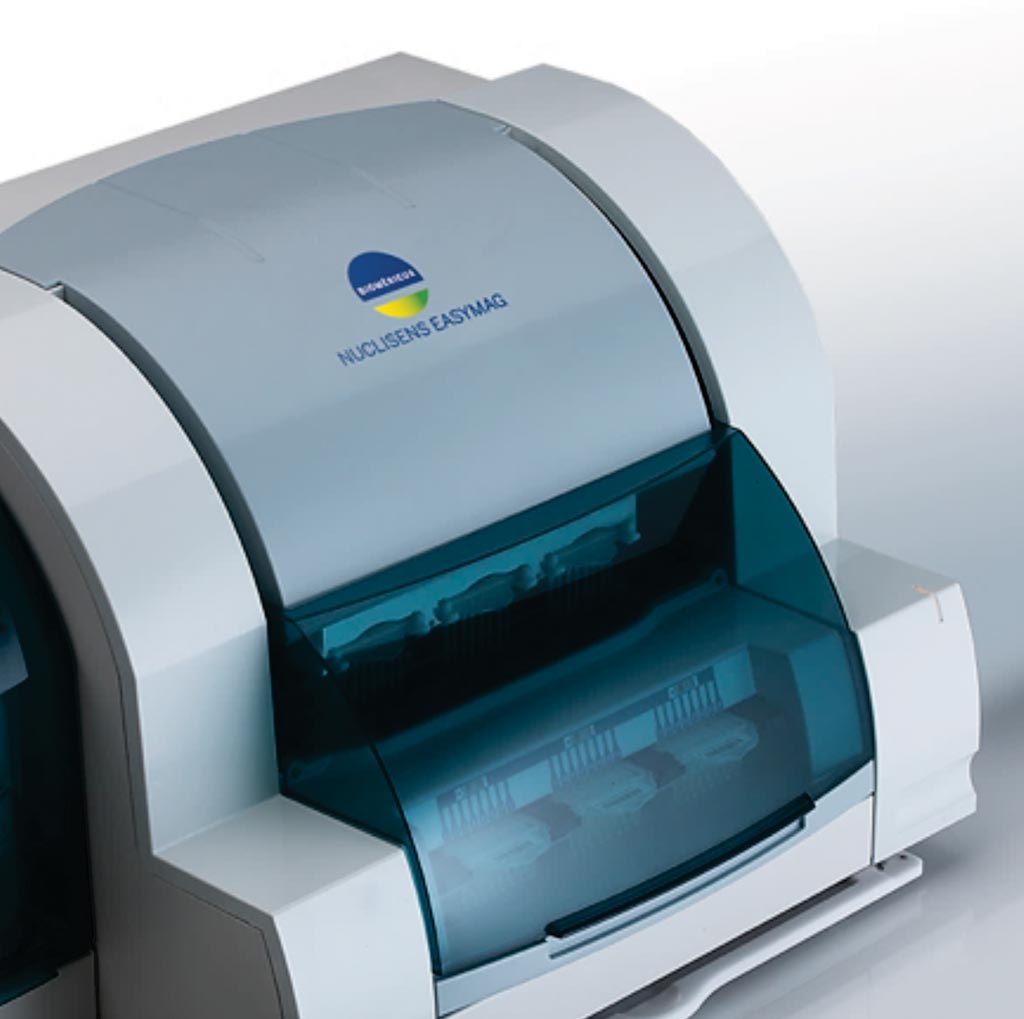Yellow Fever Virus Detected in Urine of Convalescent Patient
By LabMedica International staff writers
Posted on 13 Mar 2018
Yellow fever virus (YFV) is a member of the genus Flavivirus and causes yellow fever in humans, characterized by fever, prostration, and hepatic, renal, and myocardial complications that lead to death in 20% to 50% of cases.Posted on 13 Mar 2018
According to the current model, yellow fever virus transmissibility begins between 24 and 48 hours before the appearance of the first symptoms and lasts until between three and seven days thereafter. In most cases, the symptoms disappear after three or four days. A small percentage of those infected enter a second, more toxic stage within 24 hours of recovery from the initial symptoms, and half of these die within a period of seven to 10 days.

Image: The NucliSENS EasyMag is an automated platform specifically optimized for total nucleic acid extraction (Photo courtesy of bioMérieux).
Brazilian scientists at University of São Paulo (São Paulo, Brazil) and their colleagues tested the urine and semen of a patient who survived the disease almost a month after the patient was infected. The patient showed a moderate clinical presentation: anicteric form and mild spontaneous hemorrhage (ecchymosis in the right eye). High fever, gastrointestinal symptoms (vomiting and diarrhea), weakness, adynamia, and generalized myalgia were also observed. The patient had a weight loss of 4 kg over eight days and the patient also had severe thrombocytopenia (platelet count 77,000/mm3).
The team obtained serum, urine, and semen samples and extracted virus RNA by using the NucliSENS EasyMag Kit (bioMérieux, Marcy l’Étoile, France). They tested samples for YFV RNA by using a real-time quantitative reverse transcription polymerase chain reaction (qRT-PCR) and primers specific for YFV and a conventional PCR and pan flavivirus primer. Serum samples showed negative results for both PCRs. However, a urine sample obtained 10 days after initial symptoms was positive for YFV RNA (cycle threshold [Ct] 17.42, 9.3 × 106 RNA copies/mL) by qRT-PCR. They also performed a qualitative IgM-capture ELISA with a specific virus antigen and obtained positive results. The analysis showed that the virus belonged to a group of genotypes isolated in South America, including two isolated in 2017 in Espírito Santo State.
The authors concluded that semen can be a useful clinical material for diagnosis of yellow fever and indicate the need for testing urine and semen samples from patients with advanced disease. Such testing could improve diagnostics, reduce false-negative results, and strengthen the reliability of epidemiologic data during ongoing and future outbreaks. The study was published in the January 2018 issue of the journal Emerging Infectious Diseases.














